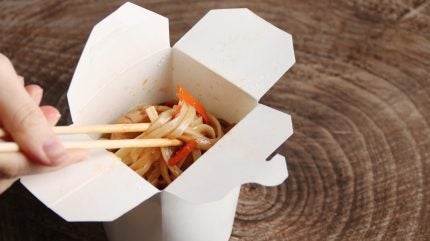
More than 80% of the people in Japan prefer to take home their leftover food from restaurants, according to a survey.
The finding aligns with new guidelines established by the Consumer Affairs Agency and the Health Ministry aimed at reducing food waste, as reported by the JiJi press news agency via The Japan Times.
The internet survey was carried out by Kuradashi, a company dedicated to minimising food waste.
The survey gathered responses from 2,010 individuals aged twenty or older.
52% would prefer to use containers provided at no cost for their leftovers, while 28.8% were willing to utilise takeout containers regardless of cost.
Together, these groups account for more than 80% of participants who are keen on taking leftovers home.
How well do you really know your competitors?
Access the most comprehensive Company Profiles on the market, powered by GlobalData. Save hours of research. Gain competitive edge.

Thank you!
Your download email will arrive shortly
Not ready to buy yet? Download a free sample
We are confident about the unique quality of our Company Profiles. However, we want you to make the most beneficial decision for your business, so we offer a free sample that you can download by submitting the below form
By GlobalDataDespite this high level of interest, just 14.5% of respondents indicated they have never left food behind at restaurants.
Historically, many Japanese restaurants have hesitated to promote the practice of consumers taking leftovers to their homes due to the absence of clear regulations.
New guidelines now clarify that consumers should assume responsibility when taking home leftovers and should transfer the food into containers themselves.
The guidelines also include advice to consumers not to leave food in places with high temperatures to maintain safety.
A Consumer Affairs Agency official stated: “We want to ensure that the guidelines concerning taking leftover food home are widely disseminated”.
According to the country’s Health Ministry, food waste is prevalent across sectors including production and hospitality, as well as within households.
Restaurants account for approximately 25% of business-related food waste, with half likely originating from uneaten meals left behind by customers.



